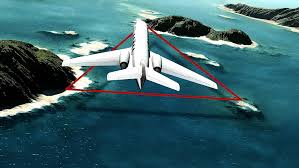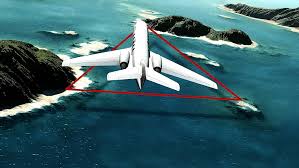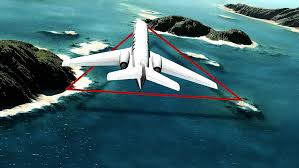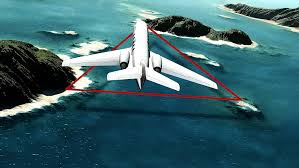When people think of careers at sea, images of massive ships crossing oceans, bustling ports, and adventurous lifestyles often come to mind. Marine transportation, which involves the movement of goods and people across seas and oceans, is one of the oldest yet most vital industries in the world. But the real question is: Is marine transportation a good career path? The answer depends on personal interests, lifestyle preferences, and career goals. To help you decide, let’s explore what marine transportation is, the types of jobs available, its benefits, challenges, and the overall future of this career path.
Understanding Marine Transportation
Marine transportation is the backbone of global trade. About 90% of world trade is carried by sea, making it one of the most essential industries for the global economy. From oil tankers and container ships to cruise liners and ferries, marine transportation ensures that goods and people reach their destinations safely and efficiently.
Working in this sector does not only mean being at sea. There are numerous onshore and offshore opportunities, including ship officers, engineers, dockworkers, logistics coordinators, port managers, and maritime lawyers. Thus, marine transportation encompasses a wide variety of career roles.
Career Opportunities in Marine Transportation
The marine transportation industry offers a wide range of career paths. Some of the prominent roles include:
-
Deck Officers (Navigators): Responsible for steering the ship, navigation, and overall safety of the vessel.
-
Marine Engineers: Manage the ship’s engines, mechanical systems, and ensure technical efficiency.
-
Seafarers and Crew Members: Handle day-to-day operations, maintenance, and support functions onboard.
-
Logistics and Supply Chain Specialists: Work onshore to manage cargo movement, port operations, and international shipping logistics.
-
Cruise Industry Staff: Hospitality, entertainment, and guest management roles on cruise liners.
-
Maritime Law and Policy Experts: Handle legal matters related to shipping, piracy, safety, and environmental concerns.
This wide variety of options allows individuals to choose based on their skills and interests, whether they prefer technical, operational, or managerial roles.
Advantages of a Career in Marine Transportation
1. High Demand and Job Security
Because global trade relies heavily on shipping, marine transportation careers are always in demand. From transporting crude oil and raw materials to consumer goods, ships play a vital role in global commerce. This means skilled professionals in this sector often enjoy long-term job security.
2. Attractive Salary Packages
Marine jobs, especially for officers and engineers, often come with competitive salaries. Due to the demanding nature of the work and long periods spent away from home, compensation is higher compared to many land-based jobs. In addition, seafarers may benefit from tax-free income depending on their country of residence.
3. Global Exposure
Working in marine transportation allows individuals to travel across countries, explore different cultures, and gain international experience. This exposure not only enriches personal life but also provides a professional edge in the global market.
4. Skill Development
The maritime sector helps individuals develop a wide range of skills, including leadership, problem-solving, technical expertise, and adaptability. These skills are transferable to other industries, making career shifts easier if needed.
5. Sense of Adventure and Pride
Many people are drawn to this career because of its adventurous nature. Sailing across oceans, dealing with real-time challenges, and being part of a profession that powers global trade gives a strong sense of purpose and pride.
Challenges in Marine Transportation Careers
While the industry has many advantages, it also presents challenges that one must carefully consider before choosing this path.
1. Time Away from Family
One of the biggest drawbacks of working at sea is the extended time away from home. Seafarers may spend months onboard with limited communication with their families. This can be emotionally challenging for many.
2. Physically and Mentally Demanding
Life at sea can be tough. Long working hours, unpredictable weather, and the responsibility of handling massive ships require resilience, stamina, and mental strength.
3. Risk of Accidents and Health Issues
Although safety standards have improved significantly, risks still exist, including accidents, injuries, and health concerns due to limited medical facilities onboard.
4. Strict Regulations and Training Requirements
Marine professionals must undergo rigorous training, certifications, and comply with international regulations such as STCW (Standards of Training, Certification, and Watchkeeping for Seafarers). While this ensures safety and professionalism, it can be time-consuming and expensive.
5. Unpredictable Work-Life Balance
Shore-based roles in logistics or port management offer more stability, but seafaring careers often come with an unpredictable schedule, which may not suit everyone.
The Future of Marine Transportation Careers
The future of marine transportation looks promising, especially with the growth of international trade, e-commerce, and technological advancements. Key developments include:
-
Digitalization and Automation: Smart ships, GPS navigation, and AI-based monitoring are reshaping the industry. Professionals skilled in technology and digital tools will be highly valued.
-
Green Shipping Initiatives: With global concerns about climate change, the industry is moving towards eco-friendly ships, alternative fuels, and stricter environmental compliance. This opens new opportunities in sustainable marine technology.
-
Expansion of Cruise Industry: As tourism grows, careers in cruise ship management, hospitality, and passenger transport are expected to rise.
These factors indicate that marine transportation will continue to provide lucrative and dynamic career opportunities in the coming decades.
Is Marine Transportation the Right Career Path for You?
Choosing marine transportation as a career depends largely on your personality and life goals. If you enjoy adventure, international travel, high responsibility, and are willing to spend time away from home, this can be a highly rewarding path. It is especially suitable for those who value hands-on work, problem-solving, and contributing to a critical global industry.
On the other hand, if work-life balance, constant family interaction, and a predictable lifestyle are priorities, then onshore roles within the maritime industry may be more suitable than seafaring jobs.
Conclusion
So, is marine transportation a good career path? The answer is yes—for the right person. It is a field that offers competitive salaries, global exposure, skill development, and the pride of being part of an industry that fuels the world economy. However, it also comes with significant challenges like long periods away from home and demanding working conditions.
If you are adventurous, resilient, and passionate about global trade and the sea, marine transportation could be one of the most fulfilling career choices you can make. With the industry evolving through digitalization and sustainability, the opportunities for growth are immense.



